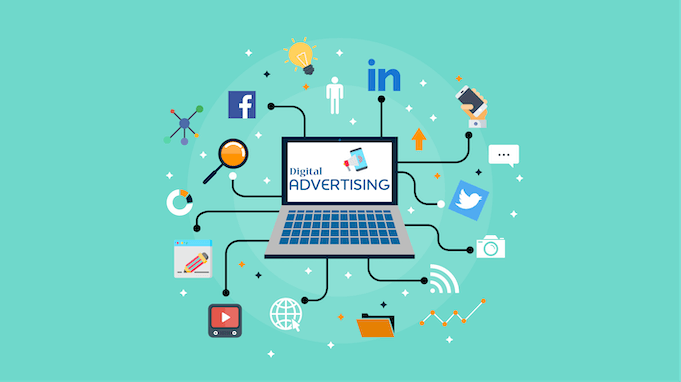In today’s fast-paced digital landscape, businesses must leverage cutting-edge strategies to stay ahead. Delving into marketing automation, lead management, and digital advertising can significantly enhance business success and drive growth.
**Maximizing Efficiency with Marketing Automation**
Marketing automation is revolutionizing the way businesses interact with potential and existing customers. By automating repetitive marketing tasks such as email campaigns, social media posting, and ad management, companies can free up valuable time and resources to focus on strategic initiatives.
Advanced marketing automation tools like HubSpot, Marketo, and Pardot help in creating personalized customer experiences, thereby increasing engagement and conversion rates. For instance, these tools can segment audiences based on specific behaviors, interests, or demographics, allowing businesses to deliver tailored content at the right time. Moreover, marketing automation facilitates A/B testing and data analysis, providing insights on what strategies work best. This data-driven approach helps optimize campaigns and ultimately maximizes ROI. Integrating marketing automation into your strategy is not simply about reducing manual work; it’s about enhancing the overall customer journey, from lead generation to customer retention.
**Streamlining Lead Management for Better Conversion**
Effective lead management is crucial for any business looking to convert prospects into loyal customers. A well-organized lead management system ensures that leads are categorized and prioritized based on their likelihood to convert, making it easier for sales teams to focus their efforts. Advanced Customer Relationship Management (CRM) systems like Salesforce or Microsoft Dynamics play a pivotal role in this process. These platforms offer robust features such as lead scoring, which assesses the quality of leads based on predetermined criteria like behavior, engagement, and demographics. Additionally, these systems facilitate seamless communication between marketing and sales teams, ensuring that leads are nurtured appropriately. By implementing automated follow-ups and personalized communication, businesses can improve lead conversion rates significantly. Furthermore, tracking and analytics tools within these CRM systems provide real-time insights into lead behavior, enabling more strategic decision-making and continuous improvement of lead nurturing strategies. Efficient lead management not only improves conversion rates but also enhances customer satisfaction and long-term loyalty.
**Leveraging Digital Advertising for Maximum Impact**
Digital advertising has become an integral part of modern marketing strategies, offering unparalleled reach and targeting capabilities. Platforms like Google Ads, Facebook Ads, and LinkedIn Ads allow businesses to target specific audiences with precision, thereby maximizing ad spend efficiency. One of the key advantages of digital advertising is its ability to provide measurable results in real-time. This allows businesses to continuously monitor ad performance and make necessary adjustments on the fly. Advanced targeting options, such as lookalike audiences and retargeting, help in reaching potential customers who are more likely to convert. Additionally, programmatic advertising leverages AI and machine learning to automate the buying of ads, ensuring they are shown to the right people at the right time. Creative ad formats, such as video, carousel, and interactive ads, also contribute to higher engagement rates. Furthermore, the integration of digital advertising with analytics tools provides businesses with a wealth of data, enabling them to fine-tune their strategies for better performance. By leveraging digital advertising effectively, companies can achieve greater visibility, increased traffic, and higher conversion rates.
**Integrating Data Analytics for Informed Decision-Making**
Data analytics is at the heart of modern business strategies, providing critical insights that drive informed decision-making. When it comes to marketing automation, lead management, and digital advertising, data analytics plays a crucial role in optimizing efforts and maximizing outcomes. Advanced analytics tools like Google Analytics, Adobe Analytics, and Tableau offer comprehensive data visualization and reporting capabilities that help businesses understand their performance across various channels. For marketing automation, analytics can reveal the effectiveness of email campaigns, social media engagement, and customer segmentation. In lead management, it provides insights into lead behavior, helping to refine lead scoring and nurturing processes. In digital advertising, analytics helps in evaluating the success of ad campaigns, identifying high-performing ads, and understanding audience interactions. By integrating data analytics into these strategies, companies can make evidence-based decisions, identify trends and opportunities, and continuously improve their marketing efforts. Ultimately, this leads to more efficient resource allocation, higher ROI, and sustained business growth.
**Enhancing Customer Experience Through Personalization**
Personalization is no longer a luxury but a necessity in today’s competitive business environment. Tailoring marketing efforts to individual customer preferences significantly enhances the customer experience, leading to increased satisfaction and loyalty. Advanced technologies in marketing automation, lead management, and digital advertising enable businesses to deliver highly personalized experiences at scale. For example, marketing automation tools can send personalized emails based on customer behavior and preferences. CRM systems can track customer interactions and provide insights for personalized communication. In digital advertising, personalized ads based on browsing history and interests can significantly improve engagement and conversion rates. Moreover, AI and machine learning facilitate deeper personalization by predicting customer needs and preferences, allowing businesses to proactively address them. Personalized customer journeys not only improve the customer experience but also build stronger relationships between the brand and the customer. By focusing on personalization, businesses can differentiate themselves from competitors, increase customer loyalty, and drive long-term success.
In conclusion, leveraging advanced strategies in marketing automation, lead management, and digital advertising can substantially boost business success. By focusing on efficiency, conversion, impact, data-driven decision-making, and personalization, companies can navigate the evolving digital landscape and achieve sustainable growth.



